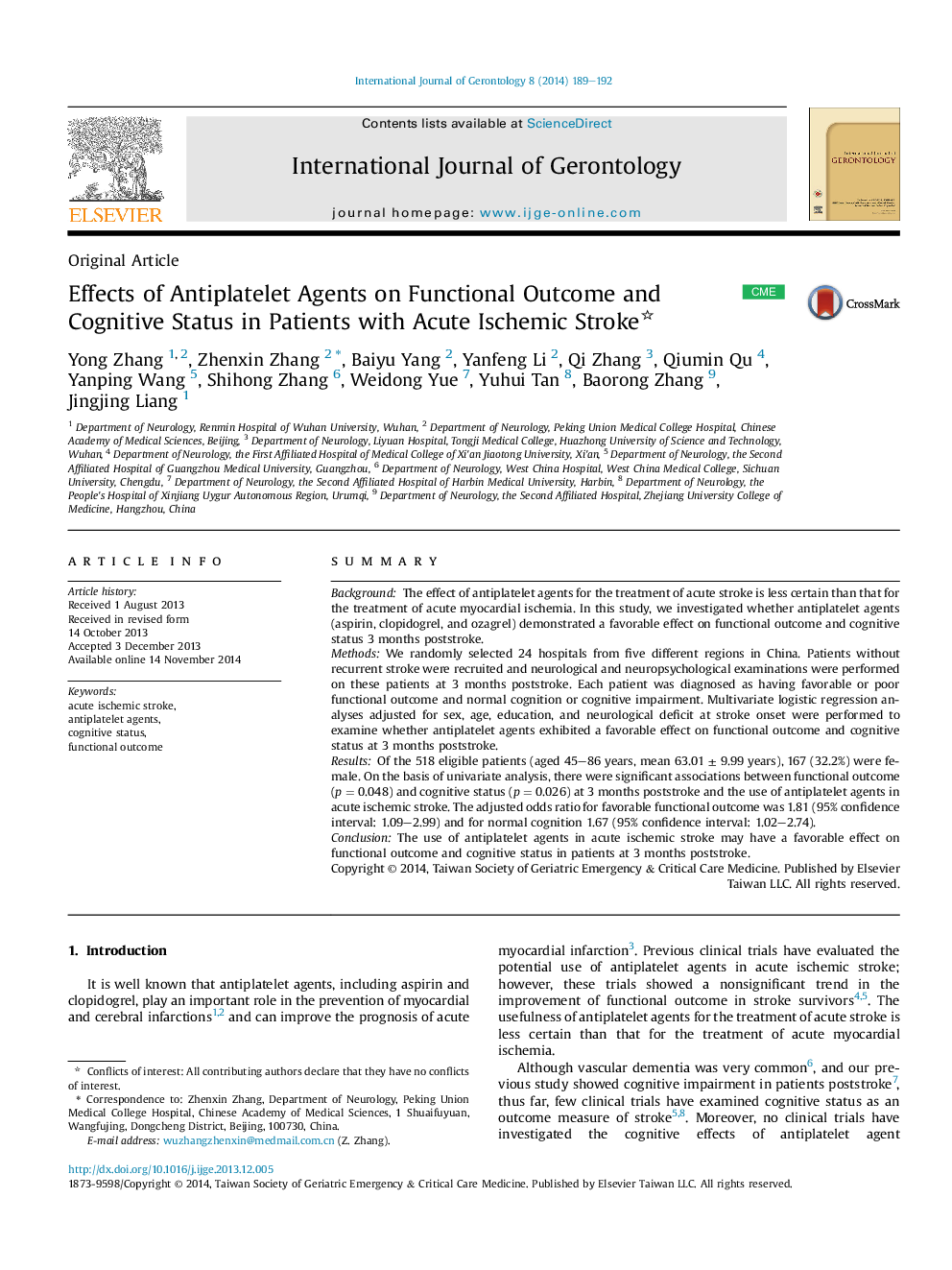| Article ID | Journal | Published Year | Pages | File Type |
|---|---|---|---|---|
| 3325352 | International Journal of Gerontology | 2014 | 4 Pages |
SummaryBackgroundThe effect of antiplatelet agents for the treatment of acute stroke is less certain than that for the treatment of acute myocardial ischemia. In this study, we investigated whether antiplatelet agents (aspirin, clopidogrel, and ozagrel) demonstrated a favorable effect on functional outcome and cognitive status 3 months poststroke.MethodsWe randomly selected 24 hospitals from five different regions in China. Patients without recurrent stroke were recruited and neurological and neuropsychological examinations were performed on these patients at 3 months poststroke. Each patient was diagnosed as having favorable or poor functional outcome and normal cognition or cognitive impairment. Multivariate logistic regression analyses adjusted for sex, age, education, and neurological deficit at stroke onset were performed to examine whether antiplatelet agents exhibited a favorable effect on functional outcome and cognitive status at 3 months poststroke.ResultsOf the 518 eligible patients (aged 45–86 years, mean 63.01 ± 9.99 years), 167 (32.2%) were female. On the basis of univariate analysis, there were significant associations between functional outcome (p = 0.048) and cognitive status (p = 0.026) at 3 months poststroke and the use of antiplatelet agents in acute ischemic stroke. The adjusted odds ratio for favorable functional outcome was 1.81 (95% confidence interval: 1.09–2.99) and for normal cognition 1.67 (95% confidence interval: 1.02–2.74).ConclusionThe use of antiplatelet agents in acute ischemic stroke may have a favorable effect on functional outcome and cognitive status in patients at 3 months poststroke.
